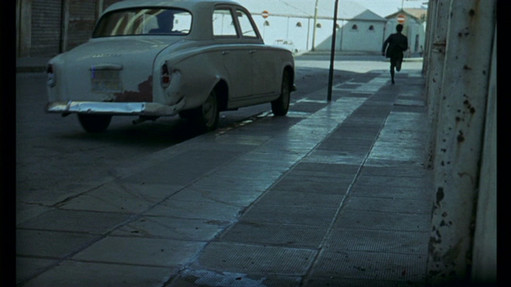 Loosely based on the 1963 assassination of Greek left-wing activist Gregoris Lambrakis, Costa-Gavras' Z is an intricate and pulse-pounding thriller that begins in the closing moments of a government meeting, where the leader of the security police of a right-wing military dominated government gives a passionate speech about fighting leftism and stopping the infiltration of them into the country. Meanwhile, a pacifist organization, which full-heartily supports the opposing party in the government, plans on holding an anti-military rally, with their leader arriving into town the day of the rally. When this charismatic leader is killed in an "accident", which feels an awful lot like a cover-up, the magistrate, played brilliantly by Jean-Louis Trintignant, begins digging deeper into the so-called drunk-driving accident, soon discovering a massive cover-up that reaches towards the very top. Costa-Gavras Z is a film that is both technically impressive and emotionally resonant, painting a somber portrait of the dangers and outrage associated with the military dictatorship that ruled Greece. The film is impressively constructed, having lots of moving parts but never feeling convoluted or confusing, as Costa-Gavras un-spools this complex story in a way that is clear and concise, considering the massive conspiracy and host of characters. Stylistically speaking, the film is even more impressive, using rhythmic editing and cinematography that is very much in this expressive verite style. The use of handheld photography is so imperative in creating this story, featuring crude camera movements and zooms that intentionally give the film a gritty, naturalistic feel which could be described as amateurish, almost as if Costa-Gavras was attempting to make the film look and feel like a documentary. The framing and compositions are also exquisite, with Costa-Gavras routinely filling the frame completely, stuffing the foreground and background in a way that ups the tension, giving Z a very claustrophobic feel at times. In the end, the film delivers a rather powerful and sobering finale, with nearly all the high-ranking government officials being essentially cleared of wrong-doing, a terrifying reminder of the corruption and untouchable nature men in high power can have. Costa-Gavras Z is a film that captures the danger of a government corruption and granting too much power to those who are supposed to enforce law and order, being a audacious film that captures how far people are willing to go in order to support their political beliefs.
0 Comments
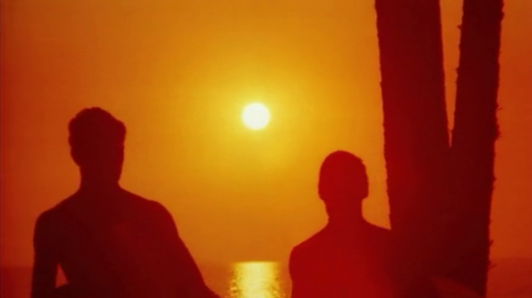 Bruce Brown's The Endless Summer is the pinnacle of surfing movies, a gleefully made, impressive documentary that captures the sport of surfing in such a beautiful, engaging, and intimate experience. The film follows two surfers who wish to experience The Endless Summer, the ultimate surfing adventure, which finds them spanning the globe in search of the perfect wave. Leaving Hawaii, the two surfers go everywhere from the uncharted waters of Africa, to the dangerous waters of Australia, spending close to an entire year chasing summer around the globe. Along with beautiful visuals that transport the viewer into these stunning sun-drenched locations, The Endless Summer works so well thanks to Bruce Brown's narration - a hip-talking, playful narration that is educational but also very funny, at times reminiscent of a Mystery Science Theater episode, as he playfully examines what he has captured with his camera, adding insights and stories to coincide and enhance the thrilling visuals. That being said, The Endless Summer is as much a travelogue as it is a surfing documentary, finding its two main characters experiencing the world first-hand, meeting different cultures and experiencing different customs. Perhaps the films greatest attribute is how the The Endless Summer becomes more than just a film about surfing, being of greater significance due to the film's ability to capture various people and cultures coming together in the face of nature's wonder. Bruce Brown's The Endless Summer is a documentary where the love, admiration, and excitement of the filmmakers can be felt on screen, making it a compelling film that captures surfing culture and the beauty and excitement of the world around us. In closing, I'll say this, The Endless Summer made me want to take up surfing, which alone could be the film's greatest accomplishment. 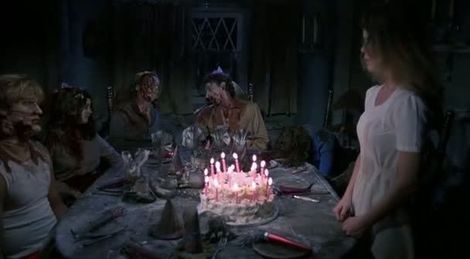 Made near the height of the teen slasher craze, J Lee Thompson's Happy Birthday To Me is one of the most visually impressive films of its kind that goes all out in delivering a twisted and convoluted narrative that is both insane but strangely compelling. The plot itself is a little hard to follow, but it basically revolves around an unseen killer, who systematically stalks and murders a group of rich kids who attend the prestigious Crawford Academy, a private school in which only the most privileged could possibly attend. Virginia Wainwright, is the main protagonist, a girl who has just returned to the school after horrible accident, quickly taking her place again among the Top Ten - the school's inner circle of the most popular students. When her friends one-by-one begin to fall victim to this mysterious killer, Virginia soon discovers that the key to these murders lies in her mysterious past. J Lee Thompson's Happy Birthday To Me is a super campy, contrived psychological thriller that manages to be a lot of fun, thanks to its skilled direction and creative horror elements. The film itself is extremely well photographed, with Thompson using heavy use of POV photography and some of the most unique compositions seen in a slasher film to give Happy Birthday To Me a unique style and feel. I particularly liked the use of close-up throughout the film as well, with Thompson's camera getting uncomfortably close to the faces of the actors, as if attempting to visually capture their fear while raising the claustrophobia and tension of the situation. Virginia is an off-kilter character who has been through much tragedy and trauma, with Happy Birthday To Me creating one of the more intricate backstories I've seen, with Virginia losing her mother in a car accident that also left her needing highly-experimental surgery. This led to massive memory loss, with Virginia slowly regaining her memories as the various murders of her friends are happening, adding another layer of confusion and mystery. The ending itself is quite contrived, but I'd be lying to say I didn't enjoy its go for broke mentality, as it essentially subverts the viewers expectations three times in the last ten minutes. These twists aren't exactly earned, but they provide a truly twisted and fun set piece, with Virginia's 18th birthday party being a beautifully staged sequence of macabre. Perhaps one of the most interesting aspects about this strange forgotten slasher flick is its rather seething commentary on the privileged and upper-class, with these characters being wealthy and entitled to an exaggerated degree. As the film progresses the backstory of Virginia reveals even more about these entitled characters, with Happy Birthday To Me even hinting that their entitled mentality was indirectly responsible for the death of Virginia's mother. Featuring some creative deaths involving a bike tire, a bench press, and a shish kabob, J Lee Thompson's Happy Birthday To Me is one of the more bizarre and interesting forgotten slasher flicks of the 1980s. 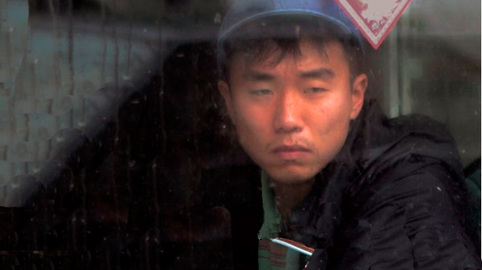 Sean Baker & Shih-Ching Tsou's Take Out is a low-budget, immersive experience that follows Ming Ding, a Chinese illegal immigrant, who struggles to make enough to survive in New York City, working as a deliveryman for a Chinese take-out restaurant in New York City. Shot in a documentary style using Digital Video and handheld photography, Take Out could be somewhat described as a slice-of-life type film, though this particular day in the life of Ming Dings gets off to an even more stressful beginning than normal. The film begins with a scene that finds Ming Ding rudely awakened by a pair of debt collectors, who assault him with a hammer, demanding that he pay off his $800 debt by night's end, or else. The only reason Ming Ling is in so much debt in the first place is his obligation to his wife and daughter back in China, which has left Ming Ling scraping by to survive in the hostile confines of New York. Taking place over the course of one day, Take Out captures the tough lifestyle of Chinese immigrants in New York City, capturing the detachment they feel from a country they know very little about. Much of the film follows Ming Ding as he makes countless deliveries all over Manhattan, spending much of his days standing in doorways and hallways, with some of his encounters being more demeaning than others. What is perhaps the most interesting aspect of Take Out is how it captures the camaraderie and almost mentor-esque nature that unfolds between Ming Ding and the other Chinese men and women he works with, as they attempt to educate him on how to get better tips, make more money, and survive in the hustle and bustle culture of New York City, a place which is very foreign to him. Intentional or not, Sean Baker's film seems to make a rather sad commentary on the state of how immigrants are treated in America, with Ming Ding's sole source of support and eventually financial support coming from his friends and coworkers, who have suffered through the same hardships. Even towards the end of the film, where Ming Ding is robbed and effectively left for dead due to his inability to pay his debts, he is bailed out by one of his fellow coworkers, a fellow Chinese immigrant who explains how they've all been there before and how it can only get better. Powerful and understated, Sean Baker & Shih-Ching Tsou's Take Out is an impressive debut feature that is full of life. 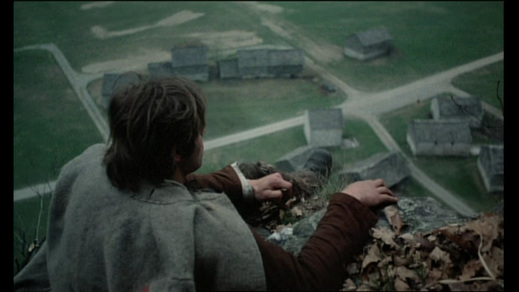 Werner Herzog's Heart of Glass is complex, challenging, and elusive, making it a difficult film to fully grasp everything the filmmaker is trying to say. While this may sound like a negative critique, this mystery is what makes Heat of Glass so compelling, being a haunting and strange film that is hard to forget. The film is centered around a small village in Bavaria which is known for its "Ruby Glass" production. When the glassblower responsible for making these beautfiul worls dies, the people of the town soon discover that his contributions cannot be replicated, as the glassblower did not leave behind the secret on how to make this special ruby glass. Becoming increasingly obsessed with duplicating this man's accomplishments, the town slides into a deep depression, with the owner of the glass factory going to extreme lengths to try and find the secret to making the ruby glass. Heart of Glass is a film that is very much up to interpretation, but the film's ability to capture the power of creativity and importance of art does stand out as a major aspect of Herzog's beguiling film. The whole experience of Heart of Glass is haunting, as Herzog harkens to the end of times, the apocalypse, using this small town as an allegory to the importance and power of art and creativity. While I'd be lying if I said I fully grasped the sure scale of what Herzog's Heart of Glass was trying to say, the film manages to capture how new ways of thinking that challenge conventions are incredibly powerful, being an extention of art. That being said, this is a very expansive film in the way that only Herzog could provide, being hypnotic and visionary. 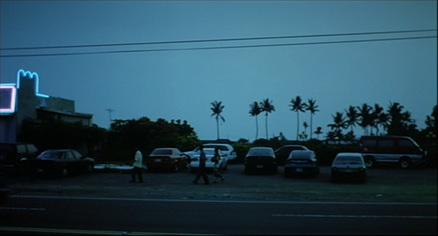 The closest to a road-movie I've seen from Hsiao-hsien Hou, Goodbye, South, Goodbye is a beguiling film that tells the story of three individuals in Kao, Fathead, and Pretzel. Kao is a gangster of sorts, running all sorts of schemes like undergournd gambling for example, to make money. Accompanying him from city to city, town to town, is his closest friend Fathead, a walking bad decision who seems to always accompanied by his ditzy, strange girlfriend Pretzel. The problem for Kao is Pretzel and Fathead are always a constant liability in one way or another, with Fathead constantly getting into fights with his cousin, a cop, and seemingly put on this earth to simply make mistakes. Always having to help them out of trouble due to their inability to take care of themselves, Kao garners the nickname "Big Bro" though his patience for their mistakes is wearing thin. A burden that Kao must bear, Fathead and Pretzels behavior escalates throughout the movie, as Hou uses long tracking shots to explore the strange character dynamics that make this relationship work. The road-movie aspect of Goodbye, South, Goodbye comes into full swing with Hou's use of these traveling shots, point of view sequences from trains, cars, even characters in the film, that give Goodbye, South, Goodbye a very distinct dreamlike feeling. One of my favorite sequences of the film is a motorcycle sequence, not from a point of view, but a lengthy tracking shot that follows Kao and the couple, Pretzel and Fathead, on motorcycles, weaving down a windy road. Probably a few minutes in length, Hou shows more about these characters relationship than any dialogue every could. While most of Hou's films have some semblance of humor, Goodbye, South, Goodbye is defintiely one of the funnier ones I've seen, taking full of advantage of its two moronic characters. This is a movie where you have to talk about the ending, and while one of its best attributes is its ambiguity, it felt clear to me. One could even argue the end of the film makes this Hou's dark comedy, as Kao falls asleep at the wheel with all three of them in it, crashiing but being the only one to suffer serious injuries. It's not clear if Kao dies or not, but I like to think he did, as if Hou is expressing how Pretzel and Fathead did eventually indirectly kill Kao, a burden he could no longer bear. The film also seems to have something to say about money and its ability to corrupt and supersede almost everything on the heirarcy, though I wouldn't say it is a central aspect of the film. Goodbye, South, Goodbye is one of Hou's most impressive films visually, which is saying something, as he has created a strange, meandering experience with purpose. 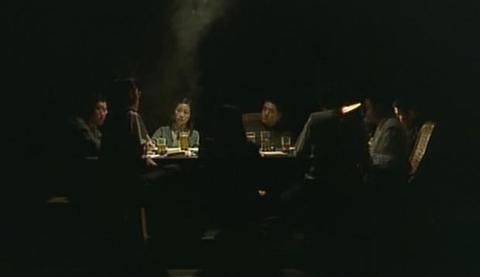 Hsiao-hsien Hou's Good Men, Good Women is a beautiful love letter to the vast individuals who lost their lives during the White Terror, where in the 1950s the Taiwanese government began cracking down on suspected communists, caught in the crosshairs of a global political issues which led to to execution of their own citizens. in particular, the story of Chiang Bi-Yu, who suffers a cruel fate along with her husband when all they were trying to do was be patriotic citizens. What makes Good Men, Good Women so distinct is while there is a wide array of films like this though, very few are this unique and have complex structure and elegant direction. The film begins in present day, where actress Liang Ching is starring in a film about Chiang Bi-Yu. Between rehearsals, Liang Ching is being victimized by an anonymous man, who has somehow managed to get his hands on her personal diary, blackmailing her. Giving the viewers very little information from the onset, Good Men Good Woman reveals itself as a story set in three different time periods. The key to the film is centered around Liang Ching's visualization of the film she is going to be starring in, playing out her role as Chiang Bi-Yu in her head, seeing herself in this 1940-1950's movie with vivid detail. Between these two aspects, Hsiao-hsien creates a link between Liang Ching and the character she is playing, which slowly awakens the actress' troubled past, which shares many similarites to the plight of Chiang Bi-Yu. With grace, Hsio-hsien Hou subtely exposes how similar these two women are, capturing the sadness in both of their lives. Hou attempts to link them metaphysically, succeeding for the most part, due to the fact that both lost their husbands and a child, but also in a more nuanced way, like use of juxtaposition that creates a semblence of them being the same person. While very much a tribute film, Good Men Good Women is much more driven by LIang Ching's complicated and seedy past life, being a character that at times may be hard to feel sympathetic for to some viewers. Good Men, Good Women is a precisely directed and photographed film that is not a pessimistic movie at all, being part tribute but more importantly an evocation on human sadness. 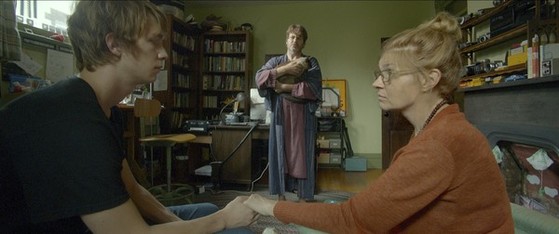 Greg, a socially awkward and self-deprecating high school senior, has someway managed to be a part of every major social group at his school. He doesn't have any friends per se, but everyone leaves him alone and Greg likes it that way. Greg is a cinephile, who spends nearly all his energy recreating his favorite films with Earl, his "business associate". When Rachel, a fellow high school senior, is diagnosed with leukemia, Greg is forced to befriend her by his mother. Awkward at first, the two eventually become good friends, which changes their lives forever. Me, Earl, and the Dying Girl is the latest quirky dramedy to come out of Sundance, and unfortunately it is as frustrating a movie experience as I expected. First of all, the film has some very uncomfortable racial dynamics, with the only African American character in the film, Earl, being a walking and talking sterotype of a culture that is simply insensitive and silly. Getting that out of the way, this is a film about the importance of having a strong self image, a important concept for sure, but Me, Earl, and The Dying Girl lacks subtlety and nuance in its storyteling. Greg is self-loathing more because we are told he is than anything else, as the whole film suffers in never feeling organic. The film certainly has the charm and quirkiness that can be entertaining, and I laughed at times sure, but like a lot of films of this ilk, the desire to be quirky takes away from the dramatic weight of the storytelling. The photography is energetic and unique at times, but the motivations between many decisions doesn't feel thought out or motivated, as if the filmmakers simply chose a shot because it "looked cool." I'm probably being a bit harsh, but Me, Earl, and the Dying Girl is a film with a strong and important message that sadly had very little emotional resonance. 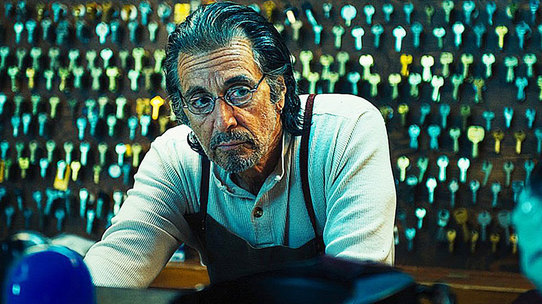 David Gordon Green's Manglehorn is a film about the destructive power of regret, telling the story of AJ, a reclusive locksmith, who laments over the love of his life that he let get away. Very much a character study, Manglehorn makes its very clear that AJ is a man who has let his regret get the best of him, whether it be in the neglect he showed in raising his son or his overall reclusive lifestyle. This regret and self pity has made AJ a man with no love to share, alienating his son and pushing away Dawn, a friendly Bank teller who takes a liking to him. One scene in particular that illustrates this revolves around a sequence in which Dawn shares her feelings for AJ and yet his only response is to talk more about the woman he let get away. Very much from the point-of-view of AJ, the film uses surrealistic touches as a way to capture the psyche of a man who is ready to die, with a car accident sequence that is remenicient of Godard's Weekend really standing out in its beauty and resonance. With Manglehorn regret is a obsessive and incendiary force, and as the story unfolds it becomes clear that only AJ himself can break free of thd downward spiral. Void of mind-numbing exposition and featuring one of Pacino's best performances in some time, David Gordon Green's Manglehorn is far from profound, but it does provide a tight and fascinating story of one man's rebirth. 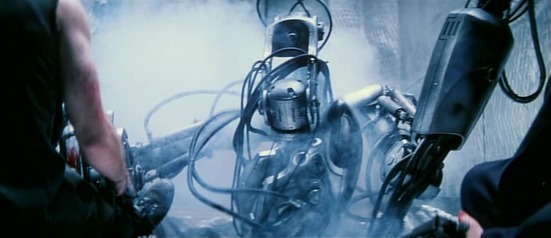 Taking place in the not-so-distant future, Stephen Norrington's Death Machine is centered around the Chaank corporation, a weapons manufacturer who has come under scrutiny after their latest tech, Hardman malfunctioned and slaughtered a host of individuals at a small diner. The board of the directors is split between Riley, who wants to cover things up, and Cale, who demands full public disclosure, intent on getting to the bottom of this ordeal and firing the man responsible. This leads Cale to Dante, the scientific genius behind this part human/part machine military project, Hardman, a 'mad scientist' type character who takes a strange and borderline obsessive liking to Cale. When Cale fires Dante, he unleashes the ultimate killing machine in the building, the Warbeast, letting his monstrous and deadly creation carry out his revenge on Cale and those who wish to help her. Stephen Norrington's Death Machine is a high-octane and stylish b-movie that draws heavily from a host of iconic horror, sci-fi, and action films to tell its tale. Featuring a memorably off-kilter performance from Brad Dourif as the mad scientist Dante, Death Machine is a playful and cheesy killer robot story that borrows heavily from other highly canonized films such as Alien, RoboCop, and Evil Dead. One of the more funny aspects involves the Eco-Warriors, an anti-corporate group, who show up intent on bringing Chaank corporation down. Intent on breaking into the facility and erasing Chaank's data, they stumble into the destructive path of the Death Machine, finding themselves over-matched and out-gunned, reminiscent to Aliens. Embracing its b-movie pedigree, Norrington injects Death Machine with a healthy dose of atmosphere, giving the whole film a foggy, futuristic feel. The film also is very stylish, with a healthy dose of visceral energy that is reminiscent of Raimi's style used in the Evil Dead series. Death Machine's commentary on corporate greed and man's attempt to defy nature are certainly prevalent, but there is no question that this is a film best enjoyed as a silly, over-the-top b-movie. |
AuthorLove of all things cinema brought me here. Archives
June 2023
|
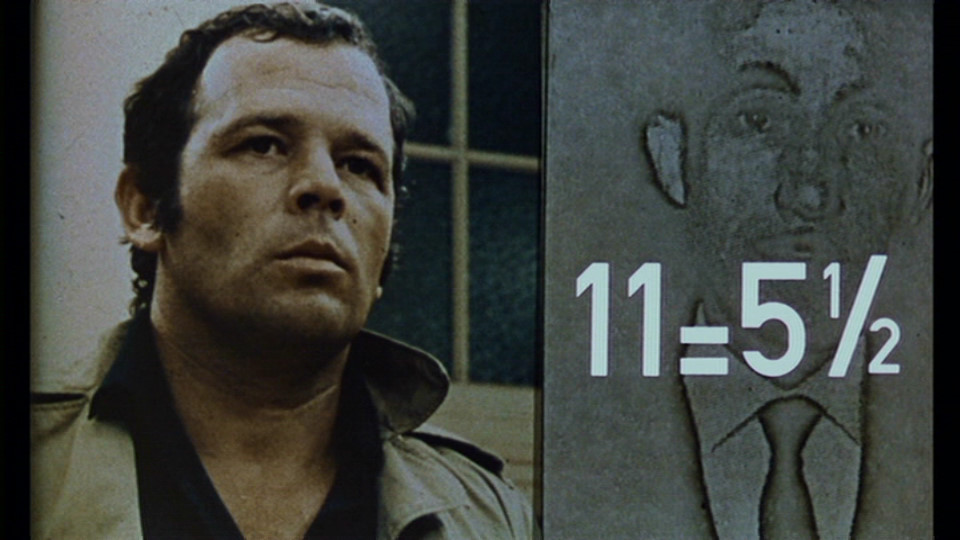
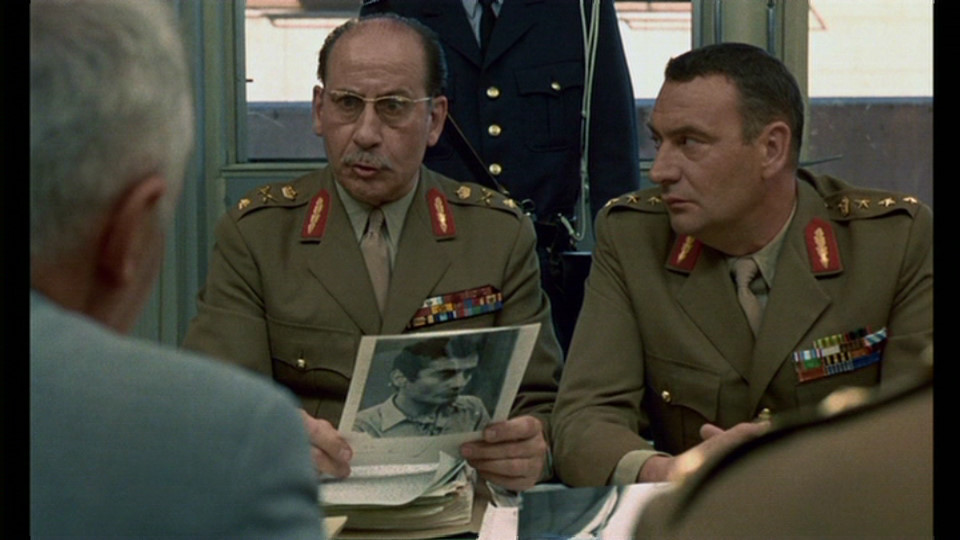
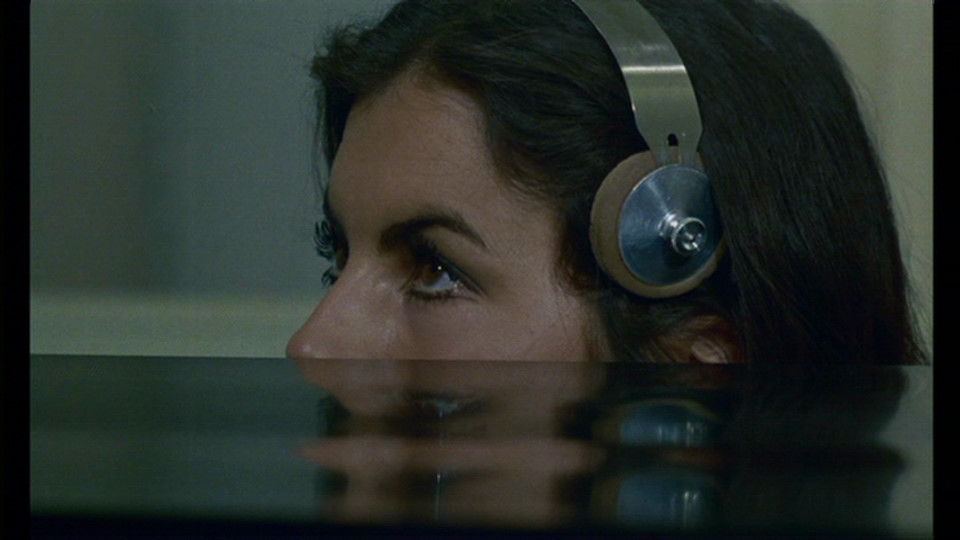
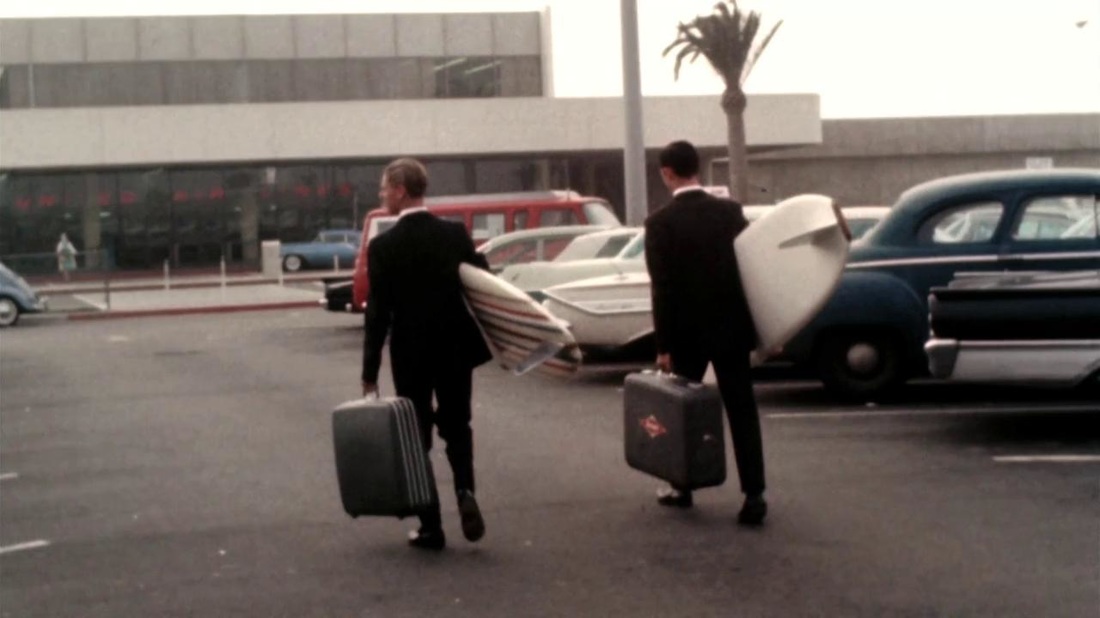
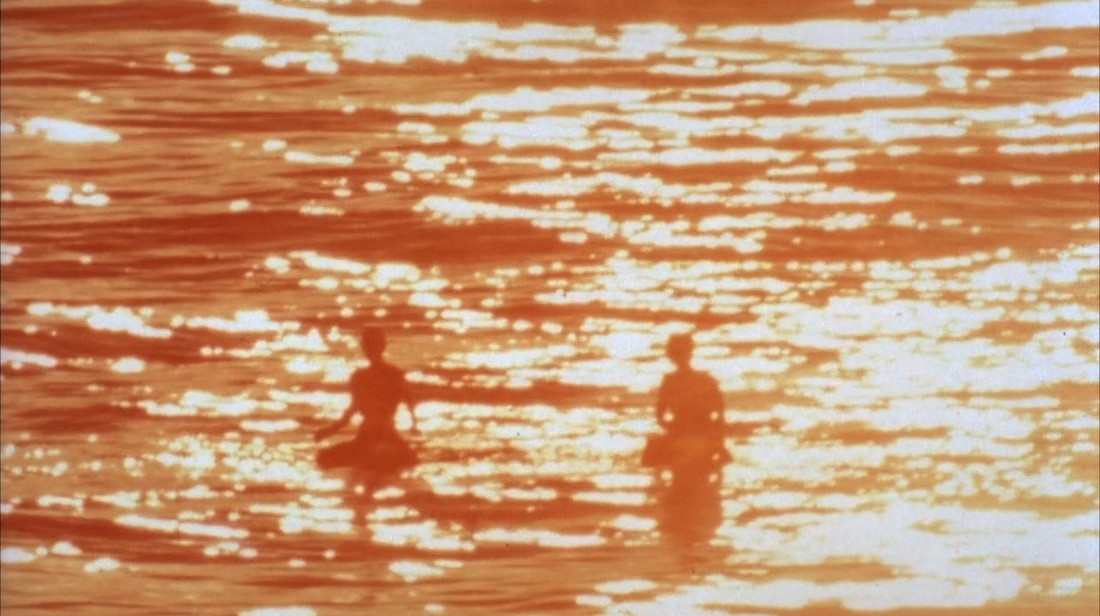

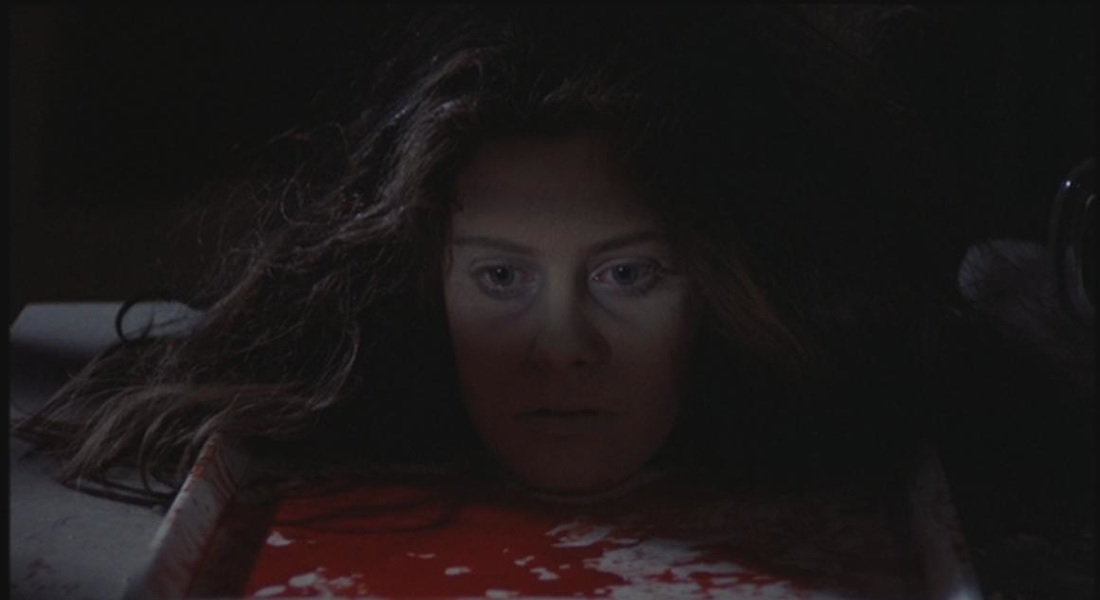
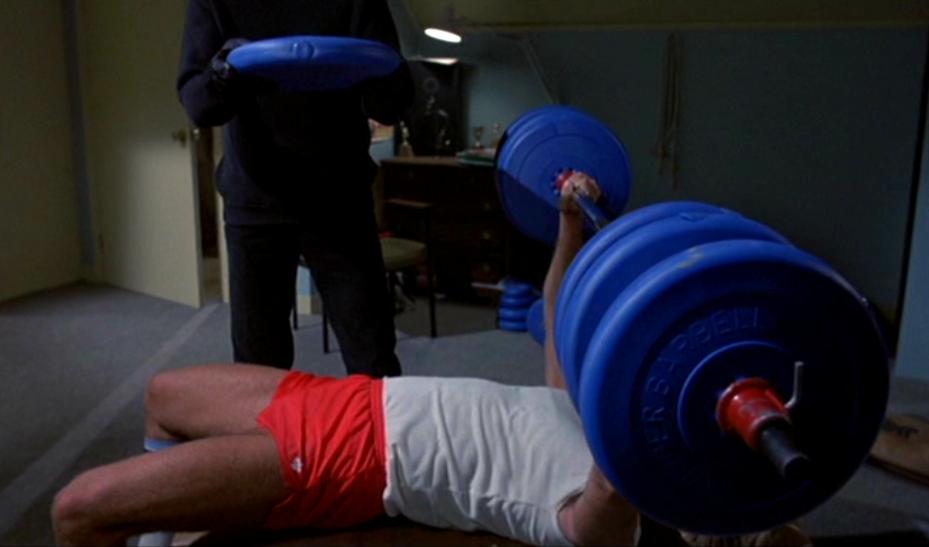
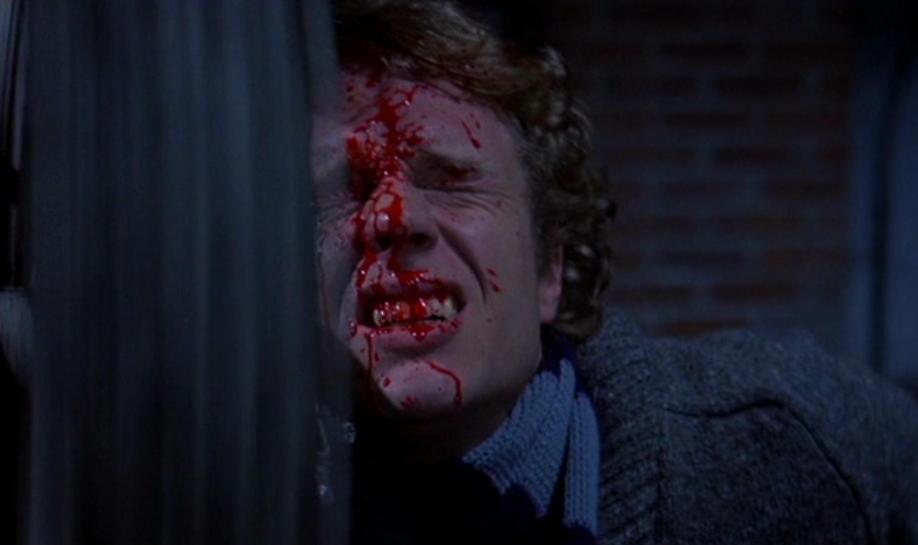
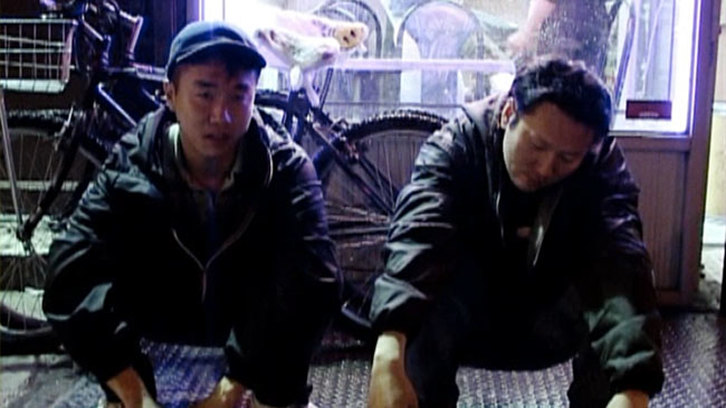
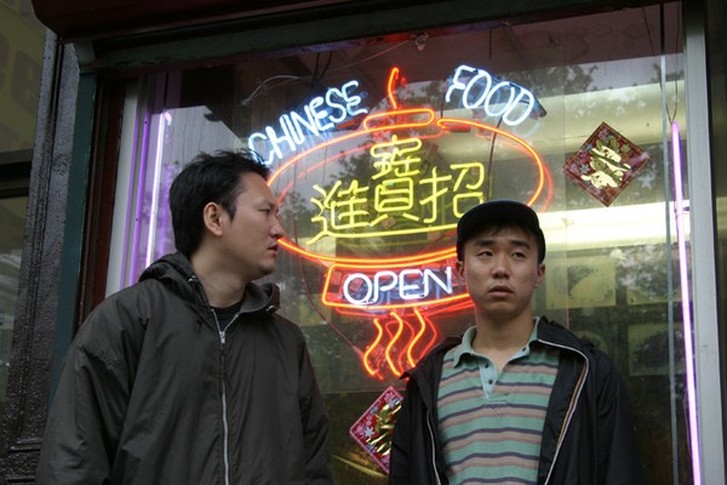
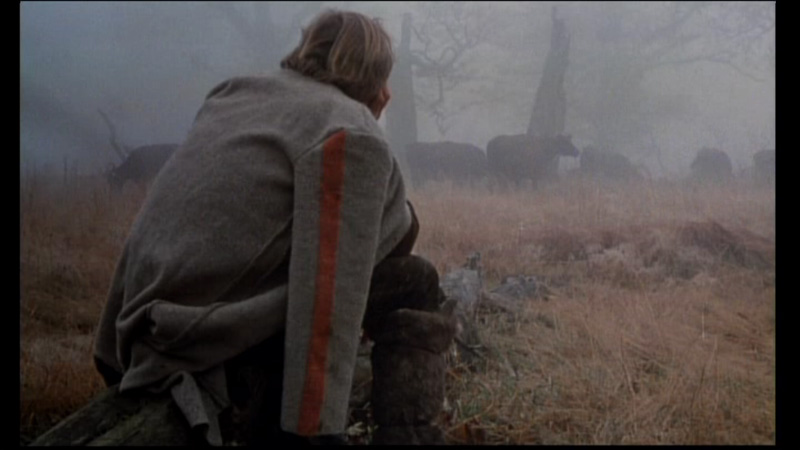
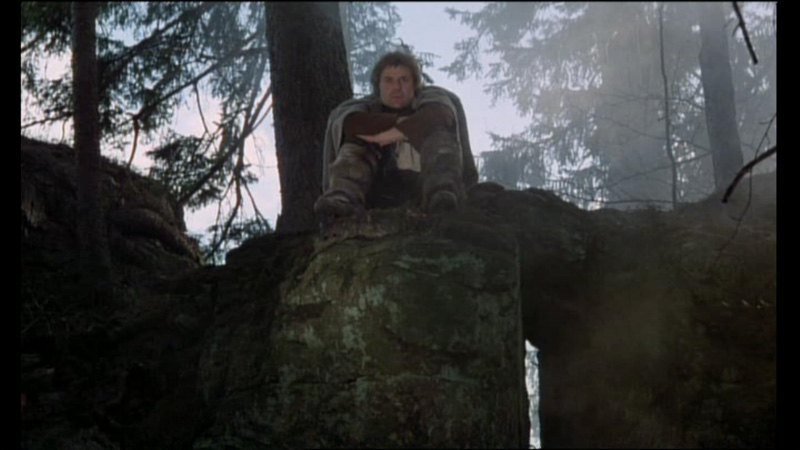
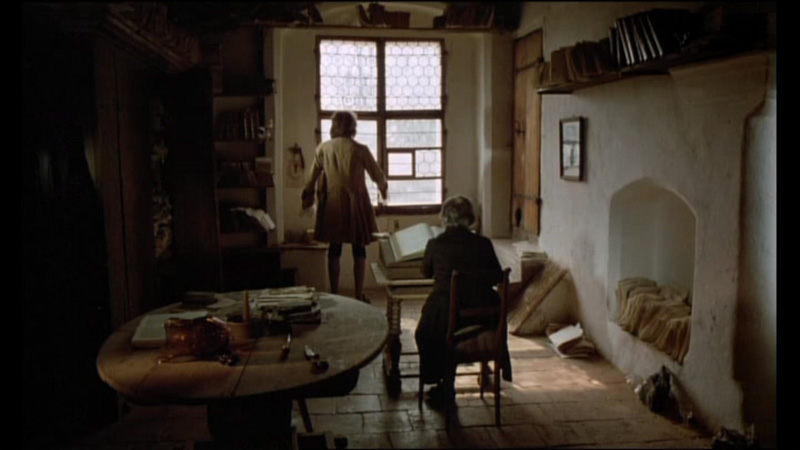
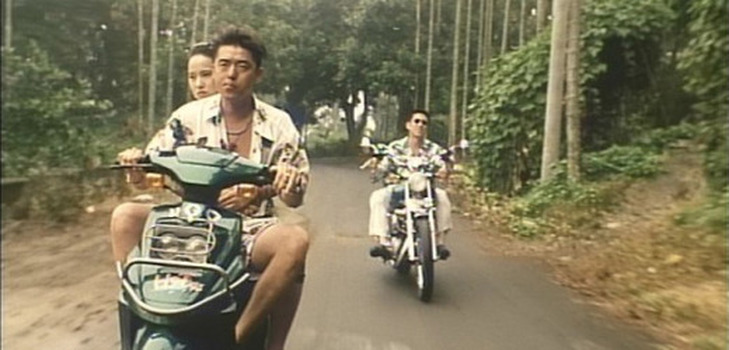
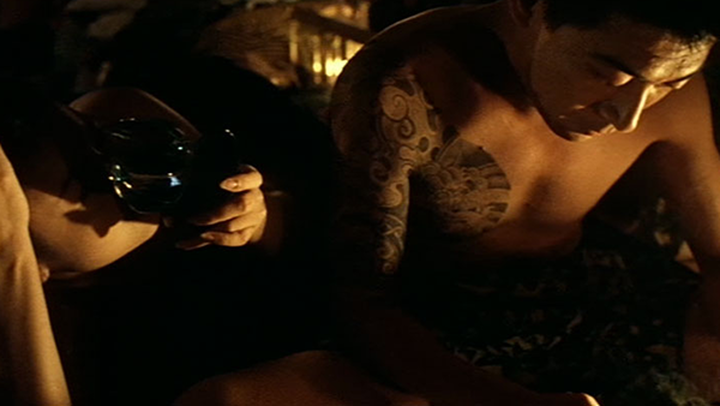
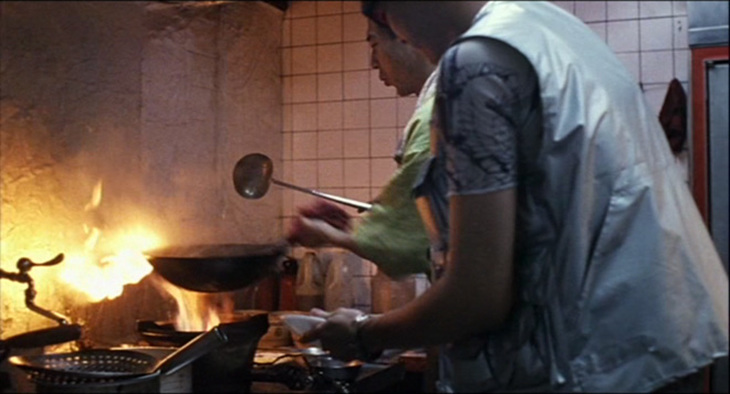
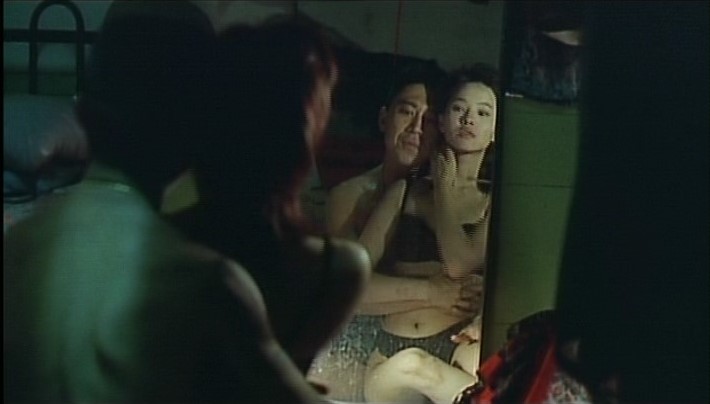
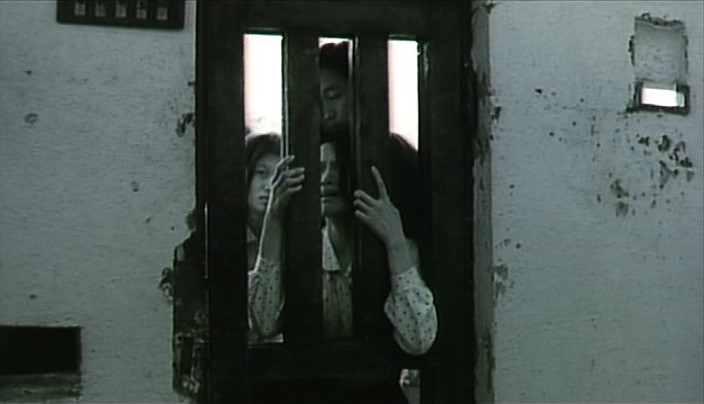
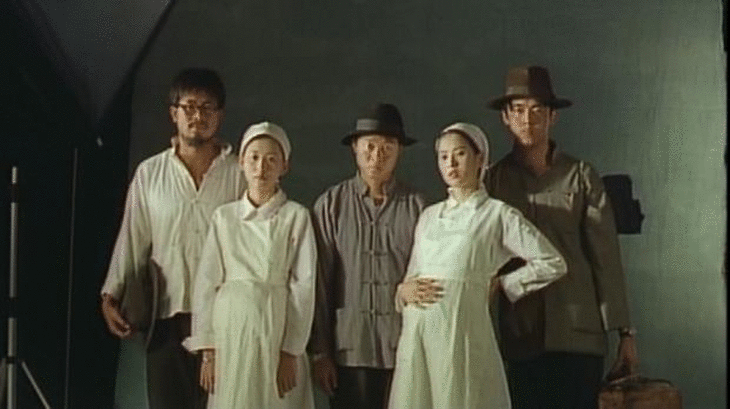
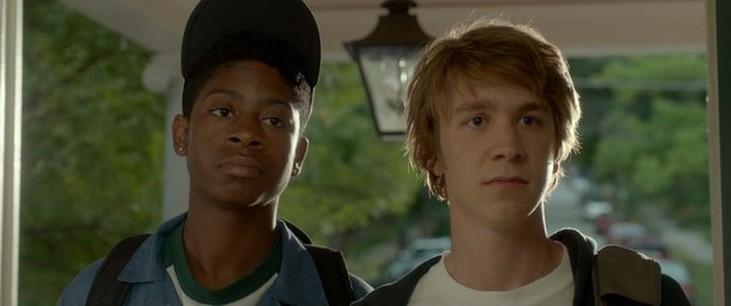
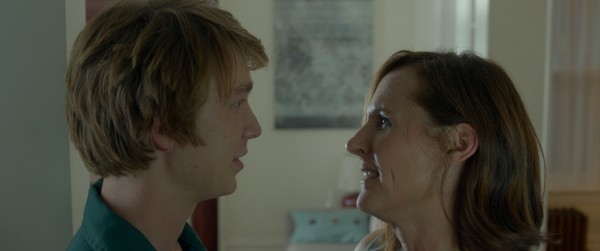
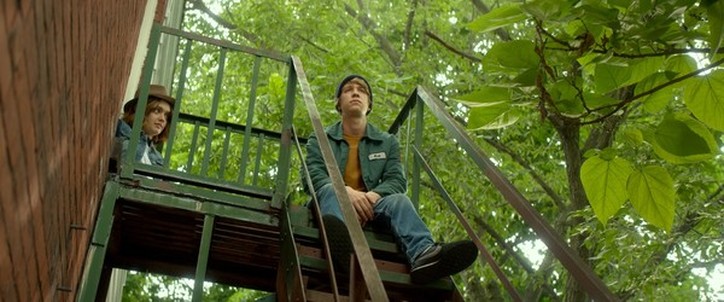
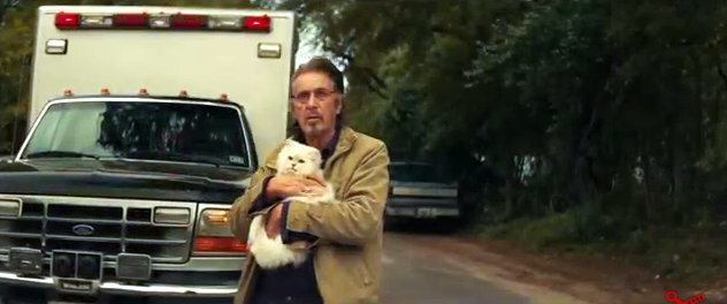
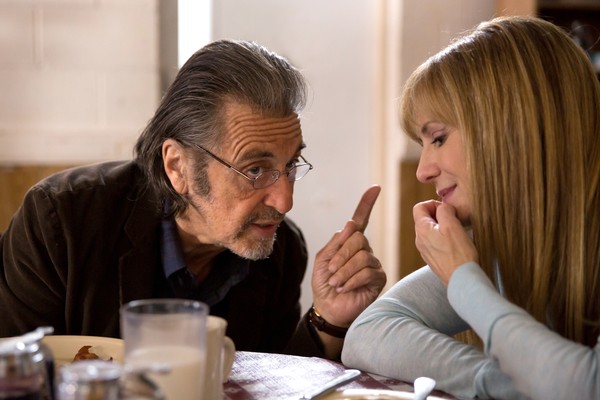
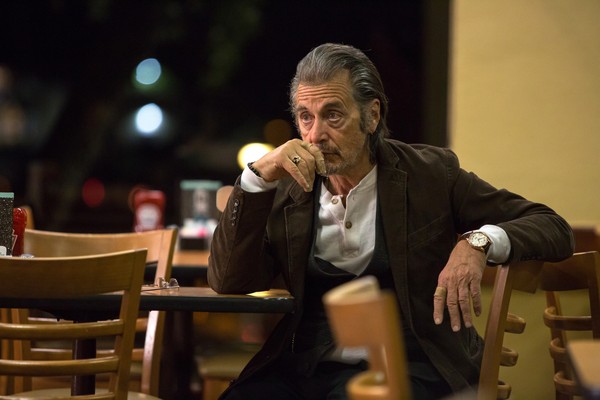
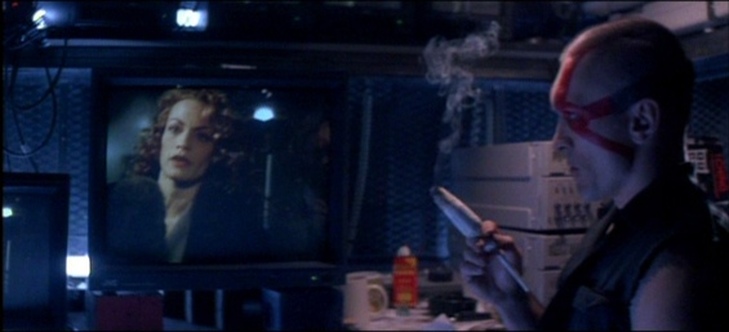
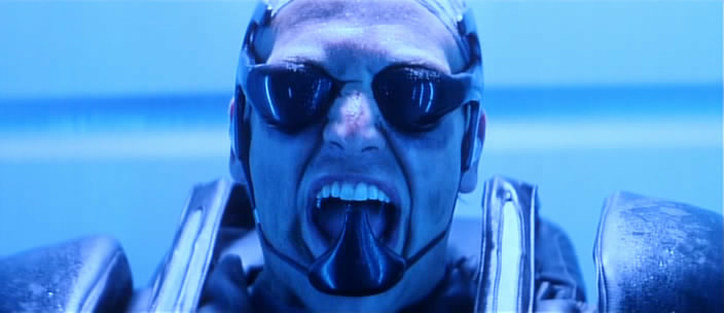
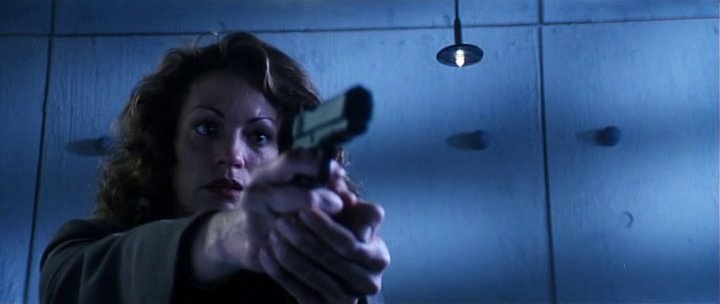
 RSS Feed
RSS Feed
